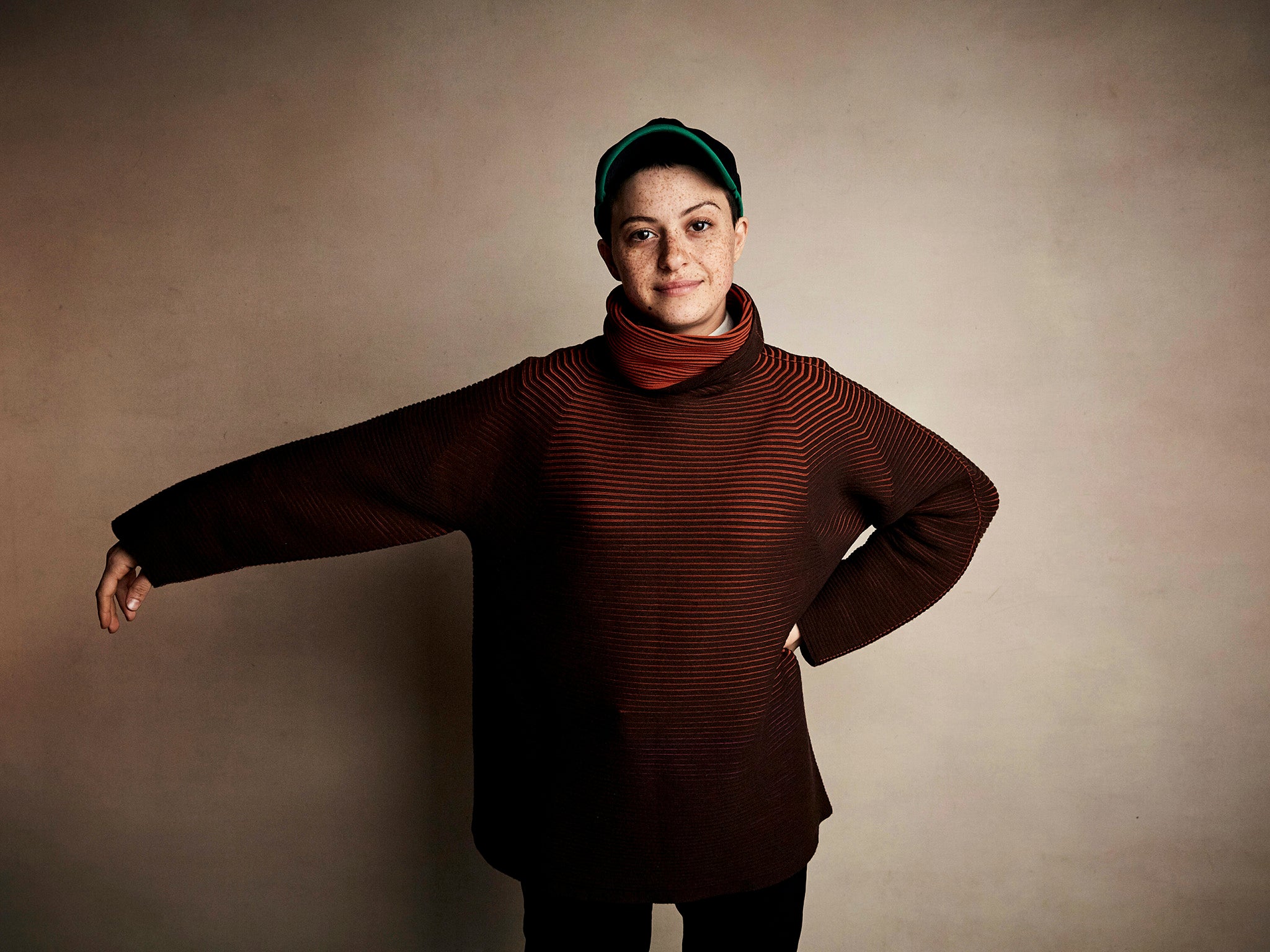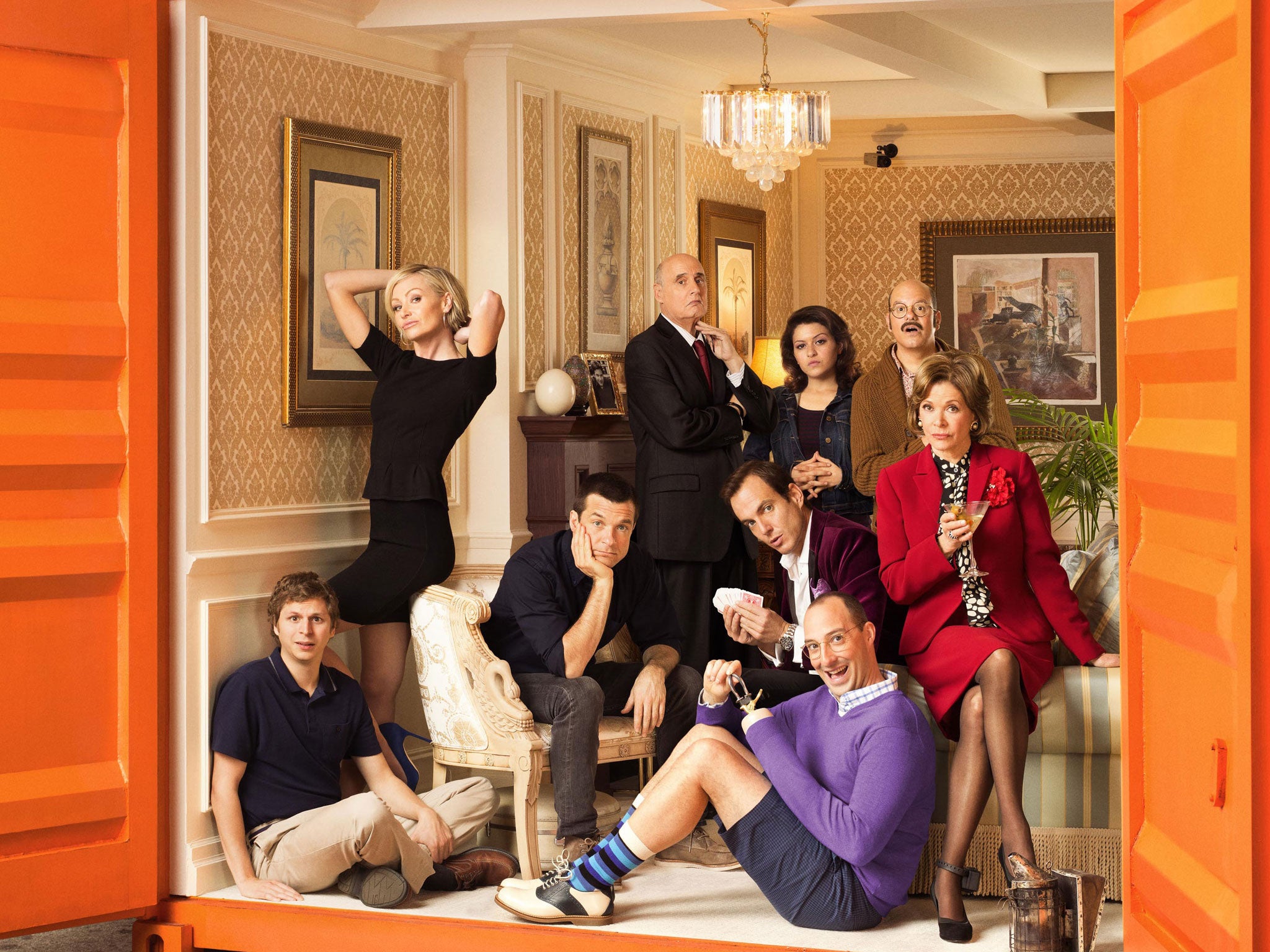Alia Shawkat: ‘When men say #MeToo is a witch hunt, it makes me want it to be one’
The star of ‘Search Party’ and ‘Arrested Development’ talks to Alexandra Pollard about sexuality, gender identity, turning 30, and that infamous New York Times roundtable


Your support helps us to tell the story
From reproductive rights to climate change to Big Tech, The Independent is on the ground when the story is developing. Whether it's investigating the financials of Elon Musk's pro-Trump PAC or producing our latest documentary, 'The A Word', which shines a light on the American women fighting for reproductive rights, we know how important it is to parse out the facts from the messaging.
At such a critical moment in US history, we need reporters on the ground. Your donation allows us to keep sending journalists to speak to both sides of the story.
The Independent is trusted by Americans across the entire political spectrum. And unlike many other quality news outlets, we choose not to lock Americans out of our reporting and analysis with paywalls. We believe quality journalism should be available to everyone, paid for by those who can afford it.
Your support makes all the difference.The last time Alia Shawkat was in London, it ended in disaster. “I woke up, and that interview had hit,” the 30-year-old recalls with a shudder. “We went into the media room and it was shut down. They’d cancelled all the press. It was… overwhelming.”
That interview – a roundtable with all of the stars of Arrested Development – happened over a year ago now, but the damage it has done to the once-loved show remains. Shawkat played Maeby – the uninhibited and unprincipled teenage daughter of Tobias and Lindsay – in the cult comedy series for 15 years. Jeffrey Tambor was her imprisoned grandfather George, Jessica Walter her pampered grandmother Lucille. They were at the table that day to promote the fifth (and now most likely final) season of the show. So, too, were Tony Hale (Buster), Jason Bateman (Michael) and David Cross (Tobias).
The group chatted about weird fan interactions, improvisation, Buster’s hook hand. But then conversation turned to the sexual misconduct allegations made against Tambor by his Transparent co-stars, and his apparent mistreatment of Walter on set. Walter recalled being “yelled at” and “harassed” by Tambor. The men at the table clambered over themselves to excuse him.
“Certain people have certain processes,” said Bateman. “We’ve all had moments,” added Hale. “This kind of behaviour that’s being described,” said Cross, “it didn’t just come out of the blue.” While Walters broke down in tears, Shawkat, several decades younger than the others and the only other woman in the room, was the sole voice of dissent. “That doesn’t mean it’s acceptable,” she said. “And the point is that things are changing, and people need to respect each other differently.” They ignored her.

Later, Shawkat chastised herself for not having said more. But now, sitting opposite me in a London cinema cafe, her signature curls sheared off, her face a panoply of freckles, she says her outlook has shifted. “When the #MeToo movement first started happening, all the women were talking about it because all of a sudden everyone had stories,” she says. “So we were trying to support each other through it, and so many men were just like... no one was asking questions. No one was like, ‘How are you doing?’ A lot of them were like, ‘It’s a witch hunt, right?’ I’m like, ‘just because you said that, I want it to be a witch hunt, honestly. Let’s go.’”
The roundtable incident, she says, is a “perfect example” of that. “People reacting out of fear, instead of choosing to reach out and ask. It’s really hard, I think, for men to ask. It’s like the simple thing of being like, ‘Ask for directions, Dad!’, and they’re like, ‘No, I know where I’m going’... but we’re talking about my value in the world. These people who have known me since I was 14 years old...” She trails off. Still, some good came out of it. “When we were in London, I was able to communicate things to them, in private, that I was never able to say for 15 years, so it was kind of a beautiful full circle. Whether they fully heard it, I don’t know. But it taught me a lot. And it’s funny coming back to London with this film, with such a different group.”
There are more women in this group, for starters. Holliday Grainger, Shawkat’s co-star in Animals, and the film’s director Sophie Hyde, are both chatting nearby. Their film, a fraught tale of a co-dependent, decaying friendship turned toxic, released in the UK yesterday, is a heady mix of debauchery and depression. Shawkat and Grainger are Tyler and Laura, best friends with lofty ideals, zero work ethic, and a relationship as tumultuous as any love affair. “One day it’s just gonna be you and me, lying around pissing on each other,” predicts Tyler. “The golden years.” Her vision comes a cropper when Laura meets a nice young classical piano player, and comes dangerously close to settling down.
“She’s a bit of a narcissist,” says Shawkat of Tyler, with a twinge of admiration. “The film’s about growing up. The many stages of coming of age. We spend all our lives in high school trying to find an identity, and then the next 10 years living it, and then after that, you’re 30, and you’re like, ‘Wait, I don’t relate to any of this s**t anymore.’ When I turned 30, there were three of my closest friends that I all of a sudden stopped talking to. And I had conversations with them but I was like, ‘I really don’t think we’re in the same place.’”
If Booksmart was around when I grew up, I would have been hooking up with a lot more girls
Shawkat turned 30 three months ago, though her twenties were hardly normal. When Arrested Development first came to an end in 2006 (it was revived seven years later), she was 17 and famous enough that people would stop her in the street, but not so famous that she didn’t have to audition anymore. After growing tired of trying out for lesser versions of Maeby, she fell away from acting, spending her time studying, painting, and partying, before a role alongside Ellen Page in the Drew Barrymore-directed Whip It in 2009 reignited her passion for performing. Since then, she’s been the lead in the caustic noir-comedy series Search Party, and co-written and starred in the underrated queer drama Duck Butter (2018).
There is a quiet contrariness to Shawkat, who always veers slightly to the left of what’s expected of her. It comes across in person, too. She is energising company: sometimes forthright, sometimes flippant, always switched on. Marriage, she says, is “patriarchal but also consumerism-based. The whole big show of it all, all this money that’s spent – that seems crazy. The white dress is bulls**t, too. It’s like, God, I hope you f**ked before you got married. And normally, the more money you spend on a wedding, the shorter the marriage lasts.” Really? “I just made that statistic up. But I feel like it sounds true.”
Shawkat is “very far away from the idea of marriage”, though that conviction was a little stronger when gay people weren’t allowed to participate in the US. She’s bisexual herself and is thrilled that pop culture is starting to better represent people like her. Take Olivia Wilde’s directorial debut Booksmart – a big, broad high-school comedy with a lesbian lead. “The hook-up scene she has in the bathroom is so cute and like, sexy but exciting,” says Shawkat. “And it’s a teen film! There never was a two-girl scene when I grew up. If there was, I think I would have come out as bisexual a lot earlier. I would have been hooking up with a lot more girls. But it was a lot scarier back then. And you just interpreted it as friends. I was like, ‘No, I just like you a lot!’ I had no idea.”
She’s delighted that films such as Booksmart exist alongside more cerebral queer cinema. “That’s what’s important, seeing yourself represented in a bigger way, instead of it having to be some weird Russian arthouse film or like, Dido, where they weren’t even gay.” Dido? Does she mean Tatu, the Russian duo dressed in school uniforms who sang 2002’s sapphic anthem “All The Things She Said”? “Tatu! Exactly. God, sorry Dido. Tatu’s music video was so hot, but also not, because it felt like guys putting girls in costumes. That was just a fetish.”
For Shawkat, coming to terms with her sexual identity meant reclaiming her relationship with femininity. She says that for a long time, “I was doing that thing where I was like, ‘I don’t feel comfortable when I’m dressing feminine.’ So it would be very extreme depending on the environment I’d be in. ‘Tonight, I’ll be myself, which is dressing like a teenage boy’, and then, ‘Oh, I’m gonna be dressed like a girl tonight.’ And it would affect the way people would respond to me. I still have that issue, but I’m trying to get more comfortable with dressing the way I wanna dress.” Today, she is wearing a raincoat and tartan skirt, her legs exposed and unshaven.
“Femininity,” she continues, “is, like, an energy that I think it’s important for girls to get in touch with. Divine femininity is all our greatest qualities that men don’t have, so why would we let men define what it is? Being empathetic, being understanding, being vulnerable, being strong... we just need to learn how to redefine it. And what does masculinity mean? If you look up the word ‘virile’, it says male. Why can’t a woman have virility, a sexual appetite?”
When Shawkat – who was born in California to an Iraqi father and an American mother – was a kid, she considered herself a tomboy. “Now, when I look at the idea of what a tomboy is, it’s kind of offensive. It was very much like, ‘I’m just one of the guys’. I always liked girls – not even just romantically, I liked hanging out with them – but I felt like my identity had to be someone who hangs out with boys. I felt like I had to do that just to be able to fit in, or play sports, or do whatever the f**k. But now, the idea of a tomboy is like... ‘no, it’s a girl. That’s cool. She’s not a tomboy, she’s just a girl.’”
These days, Shawkat tends to position herself somewhere in the middle. “I am a girl. Other times, I’m a boy. People who are younger than me have been doing it a lot more gracefully. They’re just like, ‘Yeah I’m not even either, I’m figuring it out, whatever.’ And I’m still catching up with exactly how to define myself, or not define myself. But I used to want to burn my femininity, because it meant something I didn’t like. Now, I’m trying to wake it back up, and be like, ‘I’m so sorry I hurt you. I’ll never let that happen again.’”
Animals is out in UK cinemas now
Join our commenting forum
Join thought-provoking conversations, follow other Independent readers and see their replies
Comments